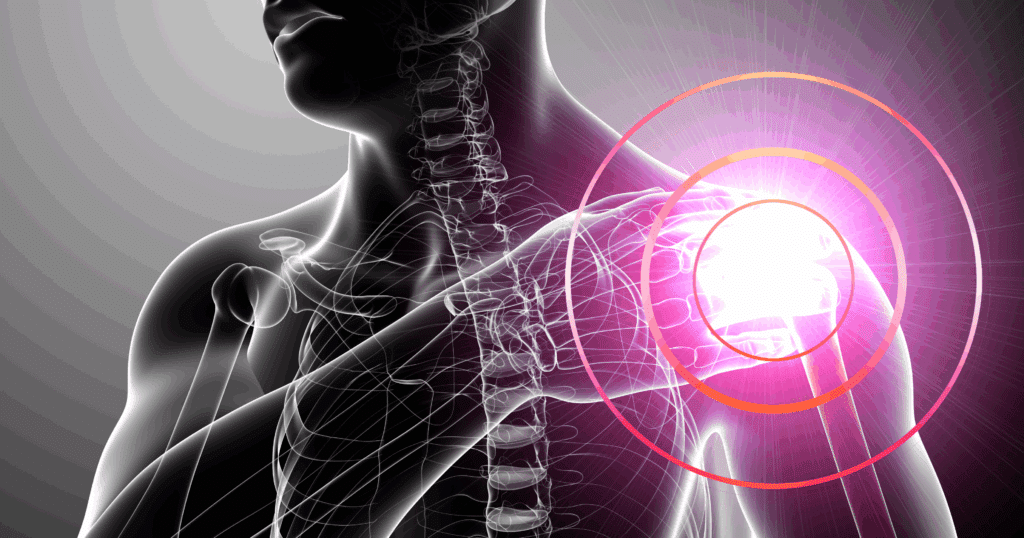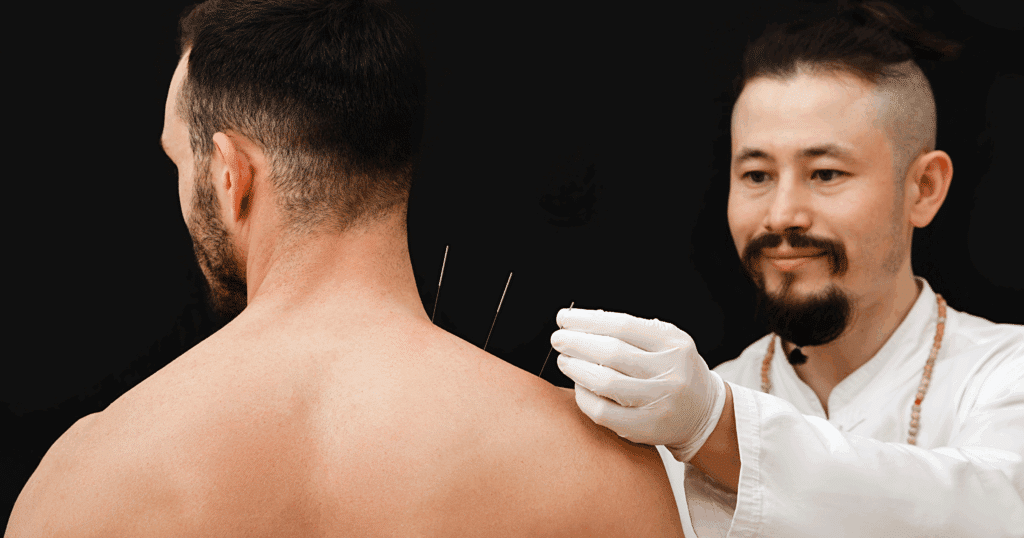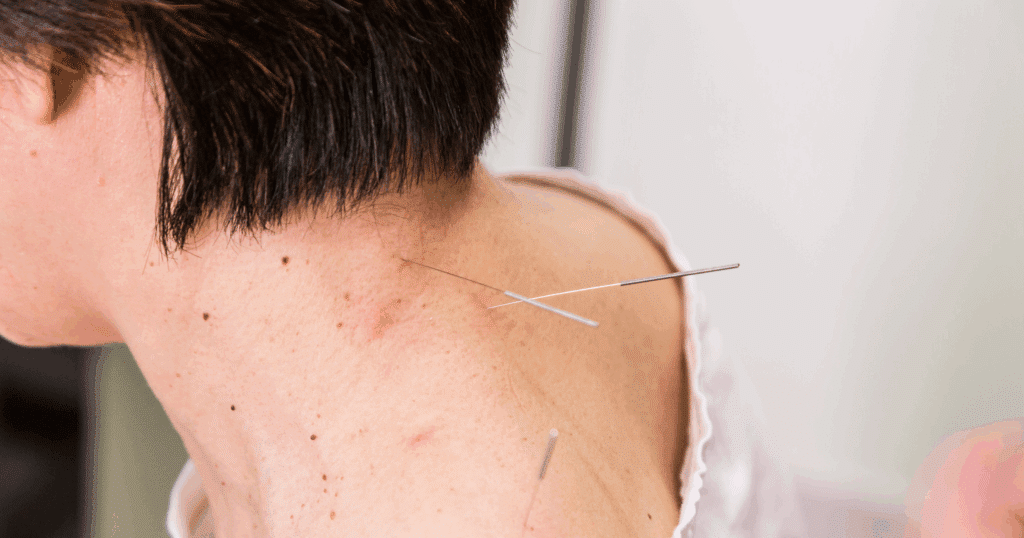Acupuncture for Frozen Shoulder: Natural Relief and Restored Mobility
Frozen shoulder is a challenging condition that painfully restricts the movements of the shoulder joint. The persistent stiffness and aching can feel like an invisible barrier, slowly locking away the freedom to move the arm with ease. Many people find everyday tasks suddenly turned difficult, simple acts such as raising an arm or reaching behind the back become tests of endurance. While traditional medical approaches can offer relief to some, others continue searching for treatments that bring deeper, lasting healing without heavy reliance on medications or surgery.
Acupuncture opens a door to such healing. Rooted in centuries of Traditional Chinese Medicine and increasingly backed by modern science, acupuncture offers more than symptom relief. By stimulating the body’s energy flow and enhancing local circulation, it invites the shoulder to heal from within, promoting improved function and a renewed sense of ease. This natural approach integrates harmoniously with other therapies, creating a comprehensive care experience focused on restoring movement, easing pain, and fostering long-term well-being through holistic principles.
Acupuncture for Frozen Shoulder: Natural Relief and Restored Mobility
Frozen shoulder is a challenging condition that painfully restricts the movements of the shoulder joint. The persistent stiffness and aching can feel like an invisible barrier, slowly locking away the freedom to move the arm with ease. Many people find everyday tasks suddenly turned difficult, simple acts such as raising an arm or reaching behind the back become tests of endurance. While traditional medical approaches can offer relief to some, others continue searching for treatments that bring deeper, lasting healing without heavy reliance on medications or surgery.
Acupuncture opens a door to such healing. Rooted in centuries of Traditional Chinese Medicine and increasingly backed by modern science, acupuncture offers more than symptom relief. By stimulating the body’s energy flow and enhancing local circulation, it invites the shoulder to heal from within, promoting improved function and a renewed sense of ease. This natural approach integrates harmoniously with other therapies, creating a comprehensive care experience focused on restoring movement, easing pain, and fostering long-term well-being through holistic principles.
Key Takeaways
- Acupuncture for frozen shoulder reduces pain by stimulating natural endorphins and calming inflammation.
- Mobility improves with acupuncture treatments as circulation and muscle relaxation help restore shoulder movement.
- Frozen shoulder recovery benefits from acupuncture when combined with physiotherapy and gentle exercise.
- Long-term shoulder health is supported by acupuncture through improved tissue resilience and reduced recurrence risk.
- Research shows acupuncture enhances outcomes when integrated with conventional frozen shoulder therapies.
Understanding Frozen Shoulder (Adhesive Capsulitis)
What is Frozen Shoulder?
Frozen shoulder, or adhesive capsulitis, is a condition characterized by pain and a gradual loss of movement in the shoulder joint. This happens because the joint capsule, the connective tissue that surrounds the shoulder, becomes thickened and tight, restricting the shoulder’s ability to move freely.
The progression of frozen shoulder typically unfolds in stages. Understanding these stages can help you better recognize the condition and what to expect:
- Freezing Stage: This initial phase can last between 2 to 9 months. It is marked by increasing shoulder pain that worsens with movement and is often worse at night. At the same time, the shoulder’s range of motion gradually decreases.
- Frozen Stage: Lasting about 4 to 12 months, this stage sees pain levels reduce, but stiffness and loss of mobility become more pronounced. Simple daily tasks become increasingly difficult, as the shoulder feels tight and limited in movement.
- Thawing Stage: This recovery phase may take anywhere from 5 months to 2 years. Shoulder motion slowly returns as stiffness begins to ease, though some occasional discomfort may remain.
People dealing with frozen shoulder often experience more than just physical symptoms. The frustration of not being able to move the shoulder freely can affect sleep and daily activities like dressing, grooming, and household chores. Emotional strain often accompanies the physical limitations, which is why compassionate and holistic treatment is essential.
Causes and Risk Factors
Frozen shoulder arises from a combination of factors that challenge the shoulder’s structure and function. At its core, inflammation of the shoulder joint capsule triggers the process. This inflammation leads to thickening and tightening of the capsule, progressively limiting movement and causing pain.
Several factors increase the likelihood of developing frozen shoulder, including:
- Immobility or limited movement, often due to injury, surgery, or conditions like stroke, which cause the shoulder to remain still for extended periods.
- Chronic health issues such as diabetes, hypothyroidism, and hyperthyroidism, which appear to influence the severity and duration of the condition.
- Trigger points and myofascial pain within the muscles surrounding the shoulder, which contribute to persistent pain and stiffness by creating tight, painful muscular knots that restrict movement.
Other contributors include age, people over 40 are more prone, and gender, as women tend to develop frozen shoulder more often, possibly due to hormonal shifts. Additionally, systemic diseases such as cardiovascular disorders or Parkinson’s disease may also elevate risk.
Conventional Treatment Options
Modern medicine offers a range of approaches, pain relievers, anti-inflammatory medications, physical therapy, corticosteroid injections, and in rare cases, surgery. Each method aims to relieve pain or improve motion, but none guarantees swift or complete recovery. Medications may mask pain but do not address underlying tightness. Physical therapy is foundational but sometimes falls short alone, especially when pain limits participation. Surgery carries risks and is reserved for severe cases.
How Acupuncture Works for Frozen Shoulder
Traditional Chinese Medicine (TCM) Perspective
From the TCM viewpoint, our body’s wellness depends on the smooth flow of Qi, the vital life energy traveling through meridians or energy pathways. In frozen shoulder, this flow becomes disrupted or blocked around the shoulder area, often aggravated by an accumulation of cold or dampness. This blockage leads to the hallmark symptoms, pain, stiffness, and limited motion.
Acupuncture works by targeting specific points related to the shoulder meridian to restore balance and unblock Qi. This process encourages muscles to relax and circulation to improve, easing discomfort and stiffness. More than just physical symptoms, TCM recognizes that emotional and energetic imbalances often accompany frozen shoulder, so acupuncture aims to harmonize the whole person, not just the joint.
Scientific Mechanisms of Acupuncture
Acupuncture’s healing power is increasingly supported by science through several mechanisms:
- Reduction of inflammation: Needle stimulation triggers the nervous system to release neuropeptides and immunomodulatory factors that calm inflammation in the shoulder joint.
- Pain relief: Acupuncture promotes the secretion of natural painkillers such as endorphins and serotonin, which help reduce the perception of pain and foster relaxation.
- Improved circulation: By enhancing microcirculation, acupuncture delivers oxygen and essential nutrients to affected tissues, supporting tissue repair and the removal of inflammatory waste.
- Muscle relaxation: Trigger point acupuncture, also called dry needling, directly targets tight muscle knots that amplify pain and limit movement. Releasing these knots allows the shoulder to regain flexibility and ease.
Acupuncture Techniques Used
Treatment for frozen shoulder involves:
- Precise needle placement: Needles are inserted locally around the shoulder joint and at distal points along the arm and back, which are connected via meridians.
- Electroacupuncture: Mild electrical currents are applied through needles to enhance stimulation. This helps activate muscles and nerves more deeply, speeding healing effects.
- Heat therapy: Sometimes combined with acupuncture to further relax tight tissues and boost circulation.
- Session schedule: Typically, treatments occur once or twice per week over several weeks. The frequency and duration depend on the shoulder’s condition and how the patient responds.
Together, these techniques work synergistically to restore energy flow, alleviate blocking factors, and encourage the body’s natural healing processes, making acupuncture a powerful and holistic option for those struggling with frozen shoulder.
Acupuncture Points Commonly Used
To effectively address the complex symptoms of frozen shoulder, acupuncturists strategically select a combination of local points near the shoulder as well as distal points on the limbs, working together to unblock energy flow, relax muscles, and reduce inflammation.
- LI 15 (Jianyu): Located on the shoulder, it’s central in relieving shoulder pain and improving mobility.
- GB 21 (Jianjing): On the top of the shoulder, this point helps release tightness in the trapezius and neck area that often contributes to shoulder dysfunction.
- TE 14 (Jianliao): Situated near the back of the shoulder, this aids in reducing localized pain and stiffness.
- LI 4 (Hegu): On the hand, used as a distal point to regulate Qi flow and enhance pain relief.
- ST 38 (Tiaokou): On the leg, uniquely effective as a distal point influencing shoulder pathology, helping to reduce stiffness.
- Ashi points: These are tender points found by palpation that correlate with muscle knots or areas of acute pain, particularly valuable in trigger point acupuncture.
- Master Tung’s San Jian (Three Shoulder Points): Located on the hand, these points are especially effective for shoulder pain relief when used on the opposite side of the body.
Together, these points help unblock Qi, relax muscles, relieve inflammation, and support the natural healing process. By combining local and distal stimulation, acupuncture treats frozen shoulder from multiple angles, leading to enduring improvement.
Benefits of Acupuncture for Frozen Shoulder
Pain Reduction and Inflammation Control
One of the most immediate benefits patients notice is pain relief. Acupuncture’s ability to modulate inflammatory pathways offers respite from both acute flare-ups and chronic discomfort. This relief is not just symptomatic but bioactive, assisting the body’s own immune regulation to resolve underlying inflammation.
Improvement in Mobility and Range of Motion
Acupuncture addresses more than pain; it unlocks the physical restrictions that freeze movement. Studies and clinical experience demonstrate improved flexibility and shoulder joint mobility through regular acupuncture treatments. The increased circulation and muscle relaxation create lasting effects that restore the natural range of motion rather than just temporarily easing stiffness.
Supporting Overall Shoulder Health
Beyond frozen shoulder symptoms, acupuncture supports the muscles, tendons, and connective tissues surrounding the joint. By nurturing these structures and preventing compensatory muscle strain, acupuncture aids long-term shoulder health, reducing recurrence risk and fostering resilience.
Evidence and Research on Acupuncture for Frozen Shoulder
Recent clinical research strongly supports the benefits of acupuncture in managing frozen shoulder. A number of meta-analyses have shown that when combined with physical therapy, acupuncture significantly enhances pain relief and improves shoulder function more than physical therapy alone. This highlights acupuncture’s role as a powerful complement in comprehensive treatment plans rather than just an alternative option.
Key findings from the research include:
- Patients receiving acupuncture alongside physical therapy experience notable reductions in pain levels compared to those who do not receive acupuncture.
- Improvements in range of motion and shoulder function are more substantial with acupuncture integrated into the treatment.
- Studies report that acupuncture contributes to both short-term relief and longer-term functional recovery.
Safety is a critical consideration in any treatment, and acupuncture scores highly in this regard. Compared to medications, which can have side effects, or invasive procedures carrying risks of complications, acupuncture is noted for its low side effect profile. This makes it particularly appealing for patients seeking a gentle, yet effective, approach to managing their frozen shoulder symptoms.
Integrating Acupuncture with Other Therapies
Physiotherapy and Exercise
A well-rounded approach to frozen shoulder recovery involves combining acupuncture with physiotherapy. This synergy not only accelerates muscle strength and joint flexibility restoration but also helps in reducing pain in a more sustainable way.
While acupuncture works to release muscle tension and promote blood flow, physiotherapy focuses on strengthening and stretching muscles, which can prevent future stiffness or injury. Together, they address both the symptoms and underlying causes, aiding patients in regaining functional use of their shoulder more efficiently.
Herbal Medicine and Lifestyle Adjustments
Alongside acupuncture, traditional herbal medicine often plays a supportive role in treating frozen shoulder. Herbal formulations targeting inflammation, circulation, and tissue repair can complement acupuncture’s effects by nourishing the body internally. Additionally, lifestyle factors are crucial for long-term recovery and shoulder health.
Maintaining correct posture helps prevent undue strain on the shoulder joint, while a diet rich in anti-inflammatory foods supports tissue healing from within. Incorporating mindful movement practices, such as Tai Chi or gentle yoga, encourages flexibility and balance without overexerting the affected shoulder. These holistic measures empower patients to manage their condition proactively and sustain improvements beyond clinical treatment sessions.
Why Choose Acupuncture for Frozen Shoulder Relief and Recovery
Frozen shoulder frequently feels like a relentless barrier to movement and peace of mind. Yet, there is hope through acupuncture. This ancient therapy, grounded in holistic healing and supported by modern science, offers a pathway to pain relief, restored mobility, and renewed vitality.
At ACA Acupuncture & Wellness, we believe in addressing the whole person, combining traditional wisdom with contemporary methods to offer compassionate, effective care. Our team invites those struggling with frozen shoulder to explore how acupuncture can be the turning point in their recovery journey.
Together, we can unlock healing, restore freedom, and bring balance back to your shoulder and your life.
Sources:
Ben-Arie, E., Kao, P., Lee, Y., Ho, W., Chou, L., & Liu, H. (2020). The Effectiveness of Acupuncture in the Treatment of Frozen Shoulder: A Systematic Review and Meta-Analysis. Evidence-based Complementary and Alternative Medicine, 2020(1). https://doi.org/10.1155/2020/9790470
Asheghan, M., Aghda, A., Hashemi, E., & Hollisaz, M. (2016). Investigation of the effectiveness of acupuncture in the treatment of frozen shoulder. Materia Socio Medica, 28(4), 253. https://doi.org/10.5455/msm.2016.28.253-257
Frequently Asked Questions
How many sessions of acupuncture for frozen shoulder?
The number of acupuncture sessions needed varies depending on the stage and severity of frozen shoulder, as well as individual response to treatment. Generally, a course of 8 to 12 sessions spaced over several weeks is recommended to see significant improvement. Consistent treatment combined with supportive therapies often yields the best results for restoring mobility and reducing pain.
What is the fastest way to heal a frozen shoulder?
Healing frozen shoulder is often a gradual process that requires patience, as the condition naturally progresses through stages of freezing, frozen, and thawing. Combining acupuncture with physical therapy and gentle, guided exercises can accelerate pain relief and improve shoulder motion more effectively than any single treatment alone. Maintaining consistent care and avoiding aggravating activities supports faster recovery while minimizing setbacks.
What should you not do with a frozen shoulder?
It’s important to avoid overusing or forcing movement of the shoulder to prevent worsening inflammation and pain. High-impact activities and heavy lifting should be limited to prevent additional stress on the joint capsule. Additionally, neglecting proper treatment or immobilizing the shoulder too long without therapy can prolong stiffness and delay healing.
What is the root cause of frozen shoulder?
Frozen shoulder is primarily caused by inflammation and thickening of the connective tissue surrounding the shoulder joint, leading to tightness and restricted movement. Factors such as injury, immobilization after surgery, or chronic conditions like diabetes can trigger or contribute to the development of frozen shoulder. This inflammation restricts the shoulder capsule, forming adhesions that impair normal motion.
Does acupuncture really work for frozen shoulder?
Yes, acupuncture has been shown to effectively reduce pain, decrease inflammation, and improve range of motion in many patients with frozen shoulder. It works both by stimulating the nervous system to release pain-relieving chemicals and by improving blood flow to the affected tissues. When combined with other therapies, acupuncture supports natural healing and can enhance overall recovery.
Should you massage a frozen shoulder?
Gentle massage can sometimes help relieve muscle tension and improve circulation around the shoulder, which may reduce discomfort. However, massage should be done carefully and preferably under professional guidance to avoid aggravating inflamed tissues. Aggressive or deep massage is generally discouraged during the acute painful phase as it may worsen symptoms.
Contact ACA Acupuncture & Wellness
Get in Touch
Newsletter Sign Up
LOCATIONS
MANHATTAN
QUEENS
NEW JERSEY
CALIFORNIA

ACA Franchise Opportunities
The over $4 billion US acupuncture market offers a great opportunity with over 10% annual growth rates and a continuing flow of new patients interested in the benefits of acupuncture.









